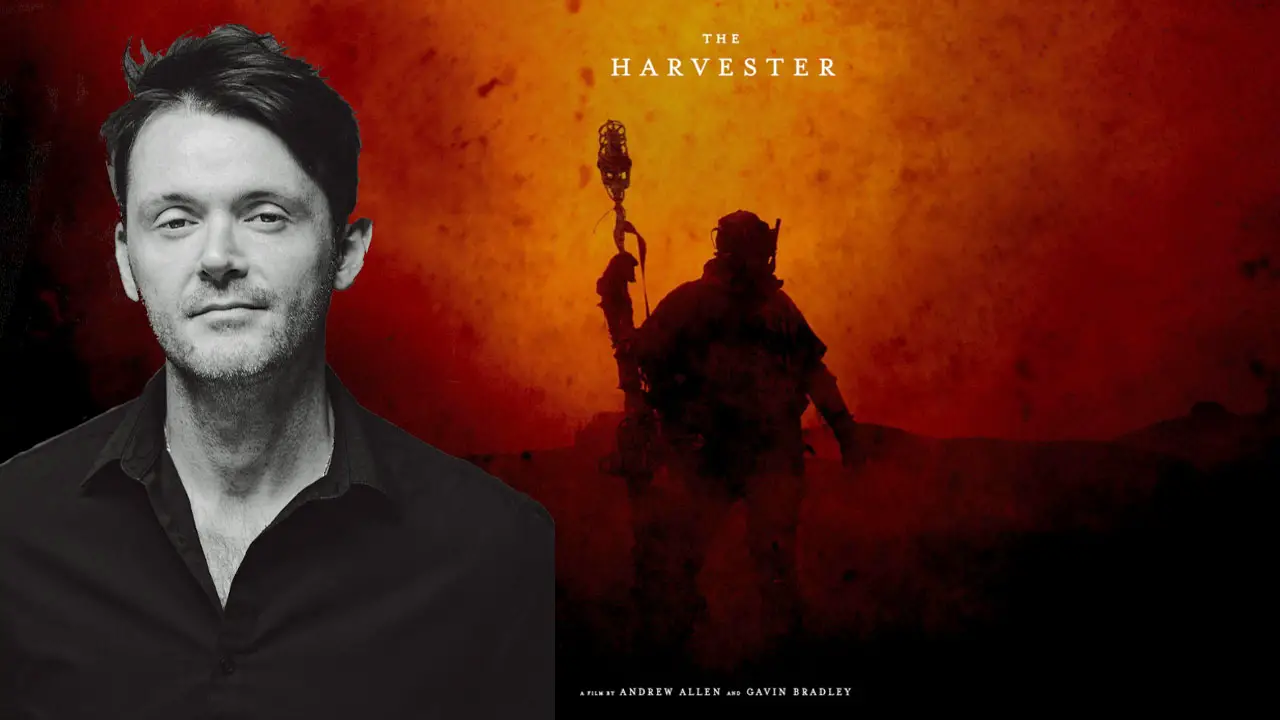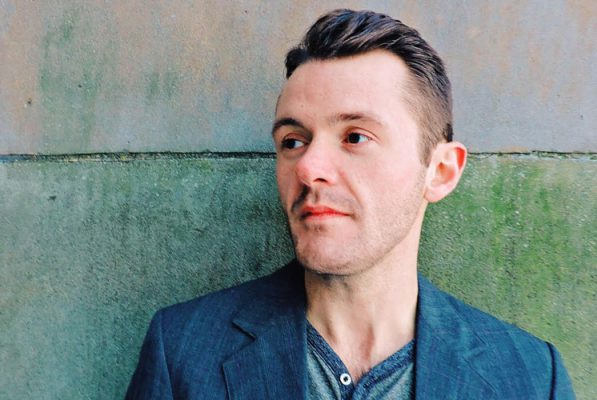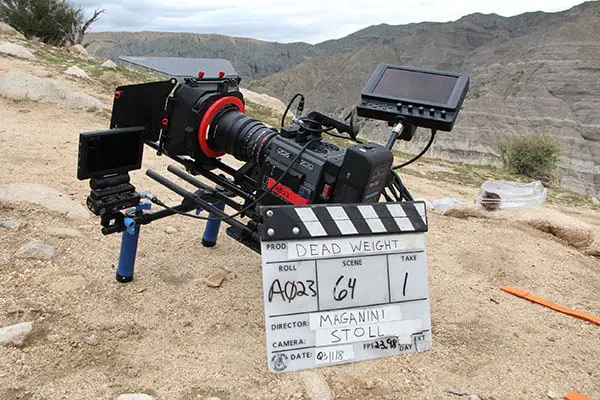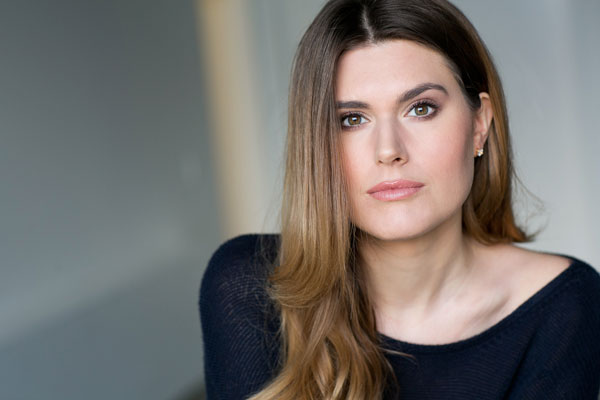
“You’re a soldier,” my Director said as we rounded the backside of the snowy, 9,000 foot tall mountain. “And we needed a soldier.”
Maple Mountain is one of a score of lower Rockies peaks that jut against the horizon around Provo, Utah. And, on a day in early November, me and the Co-director of a short film titled “The Harvester,” which I’d acted in some three years prior, were hiking up, around, and down it.
We’d done many such trails before, most often as runs. The longest of these was a 30-miler in Portland, Oregon, but there had been others including marathons and weekly jogs of varying lengths. And it all began during production of “The Harvester,” when I had been tasked with and happily accepted the challenge of looking somewhat emaciated for the role. This director joined me on these runs in an effort to help me lose weight after the timeline went from a week-long shoot to three shorter shoots spread out over the course of six months.
“The Harvester” is currently on the festival circuit and is doing quite well. It was for one such festival, the hazy, vibrant, film-maker focused “FilmQuest,” that we were in Provo. The festival’s response to my part in the film was much as it had been at others throughout the year.
“That was YOU? Wow, I didn’t recognize you.”
“You’re THE Harvester?”
“That physicality was insane.”
These are direct quotes from a smattering of the after parties at FilmQuest and they were mirrored elsewhere.
But, “The Harvester” wasn’t alone in these responses. I received similar reactions from my portrayal of a drug-addicted father who’s trying and failing to manage his new ex-con status in “Vial,” Directed by AJ Davis and Executive Produced by Hank Azaria. I also heard it in response to Luke Zwanziger’s “Vines,” in which I played a hapless utility employee who gets abducted by a mad botanist, intent on creating a plant-human hybrid.
All three of these movies had festival runs in 2024 and, while participating in that, I noticed that I kept getting the same sorts of incredibly kind remarks, but very pointed questions, especially from actors and directors. They asked about physical transformation, enduring extreme emotional states, and preparation. But most of all, they asked the biggest and most difficult of questions, “How did you do that?”
So, today, I’d like to answer that question to the best of my ability. What follows is an exploration of my tactics during the time these films were made, with a decided bent toward functional thought-processes and their resulting behaviors that might help the actor or director craft a particularly demanding role. I want to be clear at the outset that I will be talking about some physical preparation I chose to engage in as a part of my preparation. I do not suggest, nor condone your physical engagement – this is just what I did.
Demanding How?
The first question we have to explore is what precisely I mean by, “demanding,” in this context. My background is largely in theater, so to me, most roles are demanding because most (well-written) pieces don’t have a bottom. The work of the actor, when engaging such projects, becomes about narrowing but deepening the performance. This is generally true with well-written work and most training includes a whole toolkit centered around tactics, ideas, etc. to help you approach it.
So I’m not necessarily going to talk much about the sorts of things you might learn in a studio or other educational environment. What I mean by “demanding” in the context of this piece is any work that requires relatively extreme mental, emotional, or physical alterations in order to achieve. Importantly, these alterations are relative to your standard work, not anyone else’s. Many people embrace changes that others would consider extreme for every single role. For our purposes, disregard anyone else’s work. This is just about the sorts of changes you usually embrace as a part of your process, then being tasked with going much further.

Preparing Your Mind
Let’s now talk about the most difficult and, therefore, most important aspect of such transformations: The Mentality. I gained and lost some 40 pounds for “The Harvester,” (15 up, 25 down spread out across the six months of filming). Believe it or not, gaining and losing the weight was not nearly as difficult as arriving at and staying in the headspace that would allow me to do so. Luckily, I spent a lot of time journaling during this period, so I have good access to my thinking at the time.
The very first thing I’d recommend doing when tasked with a difficult role is to analyze and potentially shift your perspective toward the project. This thing you’re about to do is going to take a lot from you and if you don’t have some way to regenerate, you’re not going to hit the mark. And, wouldn’t it be great if the very thing that was taking from you was also giving back? Good news, it totally can.
Now, I’m about to recommend some mental shifts that are pointed at doing difficult roles, but I’d honestly say these tweaks in mindset are great for your acting work in general – but that’s an argument for another day.
Firstly, you’re going to need to reorient your thinking to invest A LOT of positivity into the project. Fall in love with some aspects of it – whatever draws your attention. And this will vary by project. Sometimes it’s facets of the role you’re excited to play, sometimes it’s the director, sometimes it’s the overall filming experience, sometimes it’s the challenge of the demand itself. Whatever it is, spend some time finding what you can love and then love it purely. As you’re coming to love it, feed it with time every day – however much you can manage. If you’re excited about the challenge, then watch YouTube videos about actors who have done similar roles. If you’re excited about the director, watch their films or send emails about the role to get the dialogue going. If it’s the world, get some references and start putting them on the wall.
Whatever you do, the goal here is to surround yourself with what you’re excited about and are growing to love about the project. This becomes your armor against encroaching complacency and exhaustion as you go, so it’s important that it be profound and true at the outset. Don’t advance until it is.
Also understand that this process will continue as you progress, so be sure you’re taking note of this journey in whatever way works for you. You could journal, do voice memos, daily video logs, etc. Just make sure you can access these reflections at will – you’re going to need it later.
Once you’ve fallen completely in love with the project, the next step is to begin to love it actively. This requires you to extend two difficult offerings to the project: Service and Compassion.
On Service and Compassion
Let’s talk about service first because, generally, it’s easier to offer, unless you’re an ego-centered performer. Even if you are, though, the illusion of servitude will ultimately serve you, so that’s a handy workaround.
What we love we want to serve. And, in this case, what you love is the project itself. So the mental state you need to embrace here is one devoid of ego.
“On this hill, I stake everything.” That line was my mantra throughout the filming of “The Harvester,” which, in addition to the weight ping-pong, required filming in extreme cold, carrying 40-50 pounds of equipment constantly, wearing a costume that had no ventilation and little visibility, and much more. And, as those difficulties arose, one-by-one they were deflated by the acceptance that there was nothing I wouldn’t do for this thing that I loved. You want to do some demanding acting? You’d better love it or your willpower will run dry in weeks, I guarantee it.
Once you’ve come to love it and you’ve allowed yourself to commit all that you dare to it, the next step will help you maintain that state: Compassion.
Now, this is something I don’t think we talk about enough as actors. We all know that we do our greatest work when we fully believe in the projects we’re a part of. Acting is largely a support role, after all, and we all want to support things worthy of it. But, sometimes, those projects or the people connected to them disappoint us. The rehearsals go weird. We’re called on doughnut day unnecessarily. The director is unresponsive. Whatever the case may be, we’re frequently tempted as actors to emotionally distance ourselves from our projects. And, to be totally transparent, a lot of times that distance is warranted. Boundaries are boundaries, after all. And when they’re crossed one could and should respond to that appropriately.
But in the doing of demanding work, this distance is a killer because it assaults the engine of your pursuit. To ward against it, I suggest radical compassion for the project and all of the people associated with it.
When your call time is whack, be understanding, even if you do seek change. When they put gluten in your crafty, even though you’re gluten-free, ask for something different, but don’t be offended that they forgot. Above all, seek compassion and understanding as a reflexive state at all times. That doesn’t mean accept whatever you’re given, it means seek out the most compassionate understanding as to why you were given it.
Allowing yourself to stay in this place will protect you from disillusion and otherness, which helps you continue to intensify your love well into production. And all of that prepares you for the hardships to come.
Preparing Your Body
Now, I’d hazard a guess that most people reading this will be intensely focused on this section. They want to yada-yada the headspace stuff and get down to the nitty gritty of how to actually transform physically. Well, this is a bit of a good news, bad news situation.
The good news is that transforming your body is so simple it’s kind of stupid. The bad news is that it’s so difficult it’s kind of stupid.
On the simplicity front, I’m no doctor, but look. I had to lose weight. So I got an app and I tracked calories. And I ran a lot (oftentimes with my director). And, as we got closer to the shoot date, I increased my caloric deficit as much as I could. I would’ve done more if I didn’t have a day job, but I still had to function in the world while all this was happening. Conservatively, though, I think I got within 10-15 pounds of what my goal would’ve been if I didn’t have to be in the world and could focus entirely on this role.
I hit my adjusted mark, though, about three weeks before the weight-loss scenes in which I appear fully nude were filmed, so mission accomplished. And I did it the old fashion way: Calories in less than calories out. Simple, right? But, lord, it ain’t easy.
It was hard – absurdly so. There were so many moments of temptation. So many little affordances beckoning to me. I discovered in this period that, for me, this was very much an all-or-nothing enterprise.
What I mean is that, during the most extreme part of the physical transformation, I found that every time I gave myself permission to slip up with diet or exercise, it became that much harder to get back on track afterwards. For this reason, an incredibly rigid set of habits that were chained together worked best for me. I have James Clear’s Atomic Habits to thank for this. I highly recommend reading it if you’re about to engage in this kind of physical work. But generally the theory is that, instead of changing your entire life all at once, seek to build chains of behaviors that are linked sequentially and are easy to engage. Then, give yourself enough time to build up to the change you desire.
I know that, generally we don’t have a ton of time to do this sort of process when engaging a role, but do the best you can with the time you’ve got. And be realistic about what you can achieve given the time constraints. To this end, deadlines and accountability are wildly important, so I’d recommend involving someone else in your process. Every time I’ve had to engage in this sort of transformation, I’ve involved the director. And every time it’s helped to forge a bond that carried me through the hardest parts of the journey.

Preparing Your Spirit
The process of engaging difficult work can be said to be mentally and emotionally complicated, but easy to execute. You’re doing a lot of considering, thinking, journaling, taking notes, etc. None of this particularly taxing, but it can be complicated to figure out what works.
Maintenance is the exact opposite. It’s simple to engage (losing or gaining weight is mostly about math), but hard to achieve. Once you’re in the midst of it, there are some important things to engage to keep you going.
First off, if you haven’t physically surrounded yourself with your armor of love, it’s time to do it. Put pictures on the wall, or pages of drawings. Change your wallpaper on your most-used devices. Go a little crazy with whatever has inspired you. Make sure you see it all the time. And every time you’re tempted to fall off the path, turn to this inspiration.
Something that was particularly helpful to me during this time was repeating a simple, brutal truth: Every step away from the goal is one I can never undo. Yes, one can take 50 steps back and 51 steps forward and end up closer to the goal, but you know what that costs? Time. And time is both the great enemy and friend here.
It’s your friend because you only have so much time to prepare. This forces you into action. That’s great! But it’s your enemy because you also only have so much time to learn how to stop failing. Which is not as great. Go ahead and accept that you likely won’t be perfect in the behaviors you’re trying to build and that is okay. You’re trying to do something completely insane. It’s okay to end up 75% of the way there and not lose your mind in the process.
The goal here should be to take as many steps toward the goal every day as possible. And something that’s going to be really helpful here is a countdown.
Put up how many days remain until it’s time to be done with this work somewhere and start marking down. I used index cards taped to the wall. And, man, ripping those suckers down every day was such a huge deal. The closer you get to the shoot, the fewer that remain, and the stronger you feel because you know it’s going to be over soon.
These and other similar tactics help to orient you toward the goal, inspired equally by love and determination. And you know what that turns you into? A soldier.
Integration
The final step in this process is integration with the rest of your work. Now, I don’t want to offer much acting advice here as I’m assuming you have some bedrock for that before reading an article like this. Regardless of your training or methods, I will say a few things that were helpful for me as I engaged in work that was as physically demanding in its preparation as it was in its execution.
In all three of the works mentioned at the beginning of this piece, I endured extreme physical states on-screen. In “The Harvester,” I was mortally wounded. In “Vines” that mad botanist does indeed put my character through a physical melding with vegetation and, upon trying to escape, my body and mind are both assaulted by the plant as it attempts to override my consciousness. In “Vial,” my character is suffering through increasing heroin withdrawal as the piece progresses.
So, what about performing these extreme physical states? The most valuable piece of advice I have here is visualization. Go do some research on what people actually look like while they’re in the extreme states you’ll be replicating. Then mimic it in the mirror for a while. And while you’re doing that, visualize yourself in the scene(s) you’ll go on to play. Let your imagination wander over it. Find the physicality internally first, then start to put it on.
And notice how the new physical state you’re in, brought about by your ongoing transformation, impacts your body. Note what hurts, what’s more difficult to do. And let that influence your imagination. By going back and forth between imagining and mimicking, you craft something over time that’s both rooted in authentic human experience, while still being distinct enough to be interesting for the audience to watch.
Once You’re Done
This is another thing I think we don’t talk about enough as actors. And it’s where I’ve had to grow the most in recent years. What about when you’re done with the role? You just go back to normal, right? No. Oh, no.
You must, I repeat, MUST have some sort of ritual of finality when you’re done. And this must be separate from the normal conclusion of a dramatic engagement (ie – wrap parties and the like). You must banish this process from your being precisely because it is so demanding. You cannot and should not attempt to engage in it forever. When you’re wrapped or the last curtain call arrives, light some candles, do some reflection on the process’ highs and lows, and allow yourself to be done with it.
For me, this is usually a mournful but hopeful time akin with sending a child off to college: I’m proud of how I arrived at this place, sad to see it go, but take solace in the understanding that what will be will be. It’s a painful process for me because so much emotional investment has occurred up to that point. But I find peace in knowing that, as Sirius Black says, “The ones who love us never really leave us.” And the role loves you as much as you love it, precisely because you gave it birth. The Harvester is always within me, even if the state in which he was created has been put back on the shelf until needed again. If you’re intrigued by this kind of dynamic with your creative work, I highly recommend reading Elizabeth Gilbert’s Big Magic: Creative Living Beyond Fear. It was a game changer for me and helped me nest my acting work outside of the ego and within a more transcendent flow.
Something else that’s helpful to lay bare at this stage is that not every role requires or welcomes this level of deep commitment. Now it can be intoxicating to believe the opposite. But, remember, acting is largely a support role. If you’re attempting to support something shallow with an infinitely deep process, you will frustrate yourself, alienate your collaborators, and, in the end, only be able to offer self-serving work because there’s nowhere else to seek the depth you’re pursuing. This is a paradox we see in Hollywood horror stories surrounding supposedly “method” actors. Such actors not only allow the method to be bastardized in support of their films’ marketing efforts, they also do themselves a great disservice by casting their most precious acting pearls before swineful projects. We may not want to believe this is the case, but it is, in my experience. There’s any number of reasons to do a role and, if you’re a professional actor, how demanding it is will be but one of many considerations.
So give yourself the peace of mind to let go when you’re done. And, crucially, take some of what you’ve learned with you. I realized, as a part of preparing for “The Harvester,” that I really liked trail running. So I kept doing it – oftentimes with my director and now friend, which led us to Maple Mountain years later. It’s fine to take healthy habits from this process, but don’t put yourself through the ringer trying to maintain this extreme mindset past the point of its usefulness. If you do, you run the risk of your work becoming about reflecting your mindset, instead of your mindset being necessarily shifted by the work before you.
Regardless of what kind of farewell you engage in, above all be proud of what you’ve done, even if you weren’t able to go as far as you would’ve liked. There are always more roles and, trust me, you will be asked again to go deeper into the caverns of demand. Speaking from very recent personal experience, once people see you can be a soldier, they’ll begin to imagine you as a member of their army. And that is, after all, the greatest compliment we actors get.




